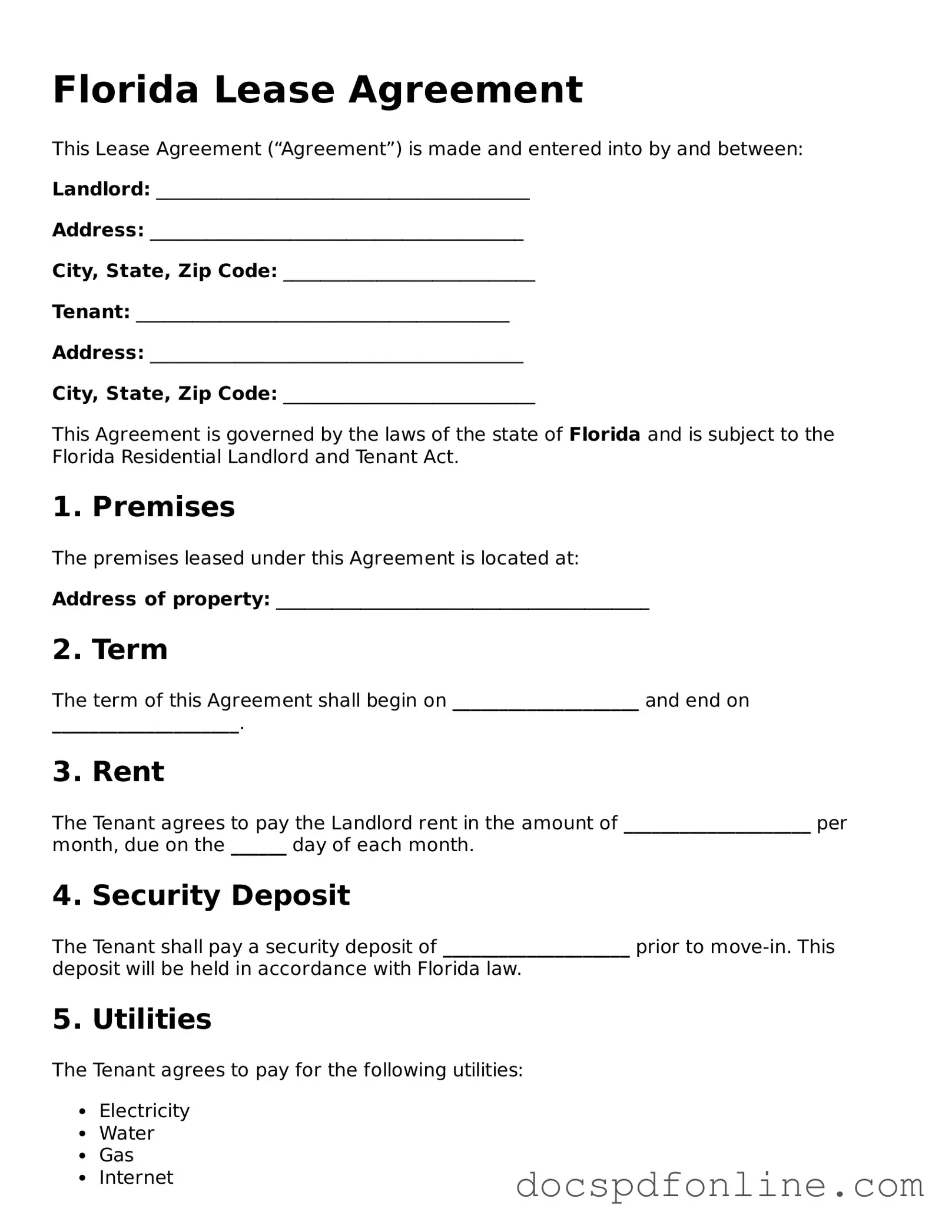Legal Lease Agreement Template for Florida
A Florida Lease Agreement form is a legal document that outlines the terms and conditions between a landlord and a tenant for renting residential or commercial property. This essential agreement protects the rights of both parties and ensures a clear understanding of responsibilities. Understanding the key elements of this form can help prevent disputes and promote a positive rental experience.
Launch Editor Now

Legal Lease Agreement Template for Florida
Launch Editor Now
Save time — finish this form fast
Finish Lease Agreement online — edit, save, download made easy.
Launch Editor Now
or
↓ PDF File
